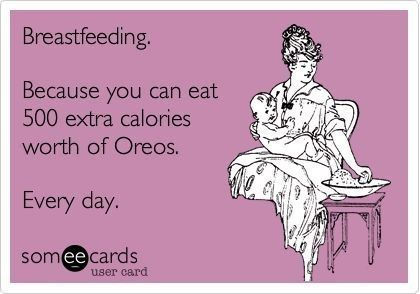Nursing Moms: Don’t believe everything you read on Pinterest
- Oct 25, 2015
- 3 min read

Breastfeeding moms (or moms to be) often look for quick and easy breastfeeding resources on the internet. It can be tough to wade through information in actual books – many moms don’t have time to read through a book at 2am when issues arise. Thanks to the world wide web we have infographics, quick links, blogs, short vlogs and more so we can digest bits of information from without much investment ourselves. In an era where anyone can claim anything and make it look “official”, there are tons and tons of just downright wrong or even harmful breastfeeding info-bits available at the click of our fingertips! My first question when I read anything is “where is the evidence to back up this claim?”. It’s a good mantra to repeat as you read claims about breastfeeding and lactation.
A quick search on Pinterest for “Breastfeeding” auto fills the search bar with “Breastfeeding diet” as a possible search option. Don’t. Do. It. Don’t search this term. If you ever want to eat again… just don’t. There are all sorts of info graphics that tell you as a nursing mother that you need to avoid all sorts of foods and drinks. The honest truth is – no, no you don’t. If someone is saying not to eat peaches, peas, peppers and plums – with no due cause, no evidence, nothing other than a list – move along. It’s not worth your time or energy to distress yourself about eating peaches. Eating whole foods is the noble goal of any human walking the planet. However, it’s ok as ‘new normal’ with your new baby takes a while to achieve - that you live off of foods that friends bring to you, take out, snacks for lunch, whatever sounds good! A strict list of foods to avoid are off-putting and really just unnecessary. Yes, there are times that the foods a mother eats may affect their nursing baby. For now, don’t borrow trouble. If it’s not broke, don’t “fix” it. I’ve worked with (and personally experienced) nursing babies who do have food sensitivities to things in a mother’s diet. Brainstorming and working with care providers to figure it out is possible – but that’s not something every (or even majority) of nursing dyads face. Eat. Make healthy choices when you can. Enjoy your food and your baby! The next auto fill search on Pinterest is “Breastfeeding tips”. Oy. Ok. <deep breaths now> Let me assure you there are no “QUICK WAYS TO INCREASE YOUR MILK SUPPLY TODAY” that don’t actually involve some work. Drinking blue (or purple or orange or yellow) Gatorade isn’t going to fix a “low” milk supply (“low” in quotes because often times it’s perceived low milk supply and things are actually going well – in the event it is actual low milk supply – you need a whole lot more than Gatorade to get you on your way). Tips on how to use a nipple shield (nipple shield use needs to be under the watchful eye of a care provider – not just willy-nilly use and tips from the internetz), tips on how to get your baby to “stretch” feedings, tips on getting your breastfed newborn to sleep through the night (let me assure you this isn’t even biologically normal for most newborns), tips on bizarre and strange things to do to your nipples or things to rub on them, tips on what to BUY BUY BUY to make breastfeeding “easier”… Phew. Gathering information and doing research are good things. Getting your information from evidence-based sources is a best practice! Some tried and true resources are The Womanly Art of Breastfeeding (get it on your Kindle, read a little each day!), Jack Newman, KellyMom, La Leche League Leaders and of course, IBCLCs! IBCLCs often offer prenatal consultations where you can address any concerns you may have about breastfeeding before your baby is even born! If you’re a first time mom with concerns or a mom of 5 – sometimes a quick prenatal appointment will allow you to have several plans and options and education/information in place so you are making the best informed consent as you go along your lactation journey.
If you’re going to use Pinterest for breastfeeding searches, let’s go to the good one. “Breastfeeding humor”. That’s a great one! Check these out:



In the end, go to good, solid, evidence-based information for your breastfeeding questions. Seek out qualified IBCLCs if issues arise. Breathe. You are the expert of your baby and you’ll know what to do or where to turn if you need help. If you’re in the Atlanta, Georgia area and would like a consultation, please feel free to contact me. Best, Angela
www.inspiredmothers.com 678-432-7917 ibclcangela@gmail.com

















Comments